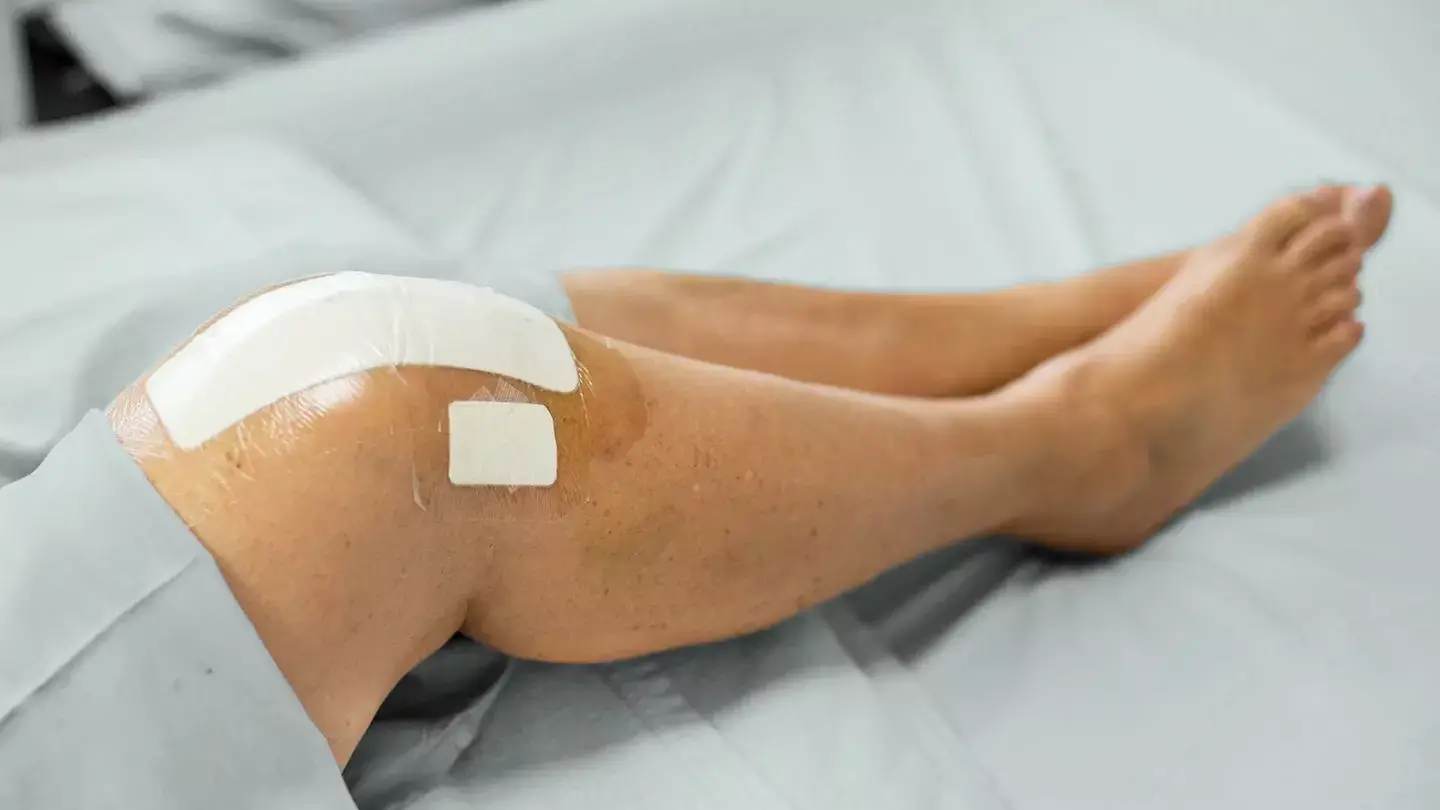- Home
- Medical news & Guidelines
- Anesthesiology
- Cardiology and CTVS
- Critical Care
- Dentistry
- Dermatology
- Diabetes and Endocrinology
- ENT
- Gastroenterology
- Medicine
- Nephrology
- Neurology
- Obstretics-Gynaecology
- Oncology
- Ophthalmology
- Orthopaedics
- Pediatrics-Neonatology
- Psychiatry
- Pulmonology
- Radiology
- Surgery
- Urology
- Laboratory Medicine
- Diet
- Nursing
- Paramedical
- Physiotherapy
- Health news
- Fact Check
- Bone Health Fact Check
- Brain Health Fact Check
- Cancer Related Fact Check
- Child Care Fact Check
- Dental and oral health fact check
- Diabetes and metabolic health fact check
- Diet and Nutrition Fact Check
- Eye and ENT Care Fact Check
- Fitness fact check
- Gut health fact check
- Heart health fact check
- Kidney health fact check
- Medical education fact check
- Men's health fact check
- Respiratory fact check
- Skin and hair care fact check
- Vaccine and Immunization fact check
- Women's health fact check
- AYUSH
- State News
- Andaman and Nicobar Islands
- Andhra Pradesh
- Arunachal Pradesh
- Assam
- Bihar
- Chandigarh
- Chattisgarh
- Dadra and Nagar Haveli
- Daman and Diu
- Delhi
- Goa
- Gujarat
- Haryana
- Himachal Pradesh
- Jammu & Kashmir
- Jharkhand
- Karnataka
- Kerala
- Ladakh
- Lakshadweep
- Madhya Pradesh
- Maharashtra
- Manipur
- Meghalaya
- Mizoram
- Nagaland
- Odisha
- Puducherry
- Punjab
- Rajasthan
- Sikkim
- Tamil Nadu
- Telangana
- Tripura
- Uttar Pradesh
- Uttrakhand
- West Bengal
- Medical Education
- Industry
Current Practice Trends in Knee Arthroplasty in India among ISHKS Members

Best clinical practices are followed, so that complications are minimized and recovery is enhanced. However, regional variations in clinical practice prevail due to the nature of pathology, availability of infrastructure, and individual surgeon preferences. Arun Mullaji et al conducted a study to assess the current practice trends in knee arthroplasty in India among ISHKS (Indian Society of Hip and Knee Surgeons) members. The study has been published in ‘Indian Journal of Orthopaedics.
Literature review on 12 areas of key interest in total knee arthroplasty was conducted. 28 questions pertaining to these key areas in total knee arthroplasty surgery were presented to the delegates for a physical voting with audience response system (ARS) at ISHKS meeting. The members who could not attend the meeting voted by an online via ‘monkey survey’. All questions were given three responses: a. Agree, b. Disagree, and c. Abstain.
Key findings of the study were:
• 310 delegates participated and 295 voted in the physical meeting and 110 voted online.
• Consensus was reached for 28 statements representing five domains on the best practices.
• Overall, 92% of statements reached unanimous or strong consensus.
• The statements that achieved strong majority (>90%) were the factors on pre-operative skin preparations, administration of antibiotics 30 min prior skin incision, and current practices of bilateral TKR.
76% of panelists also have approved that it is not mandatory to perform arthroplasty surgery with the surgical team wearing body exhaust suits, whereas 22% of panelists have still supported their use.
96% have given agreement that “Preoperative skin cleansing prior to arthroplasty surgery has a role to play in reducing SSI/PJI”
82 percent of the panelists have approved that “Hair removal from the incision area can be done using clippers or depilatory creams, as close to the time of surgery and not in the operating theater”
90% of the panelists have approved that Bilateral TKA may carry a slightly higher risk of complications and so careful patient selection is essential and that it should not be performed in patients with cardiopulmonary disease, advanced age, higher ASA grades, and significant medical co-morbidities.
• There was strong consensus approval on the role of aspirin for prophylaxis of DVT, lack of benefit on use of drain, considerations for pre-emptive analgesia, and neuraxial anesthesia.
• There were disparate views and weak consensus on use of laminar airflow theatres and use of surgical space suits, length of antibiotic administration postoperatively, and linking of DVT with PE and death.
The authors concluded – "This study gives the surgeon practice preferences in knee arthroplasty in India and assists in clinical decision making for all healthcare professionals."
Further reading:
Current Practice Trends in Knee Arthroplasty in India Among ISHKS Members: ISHKS Annual Meeting 2019
Arun Mullaji, Dhanasekara Raja Palanisami et al
Indian Journal of Orthopaedics (2023) 57:1678–1688
https://doi.org/10.1007/s43465-023-00940-4
MBBS, Dip. Ortho, DNB ortho, MNAMS
Dr Supreeth D R (MBBS, Dip. Ortho, DNB ortho, MNAMS) is a practicing orthopedician with interest in medical research and publishing articles. He completed MBBS from mysore medical college, dip ortho from Trivandrum medical college and sec. DNB from Manipal Hospital, Bengaluru. He has expirence of 7years in the field of orthopedics. He has presented scientific papers & posters in various state, national and international conferences. His interest in writing articles lead the way to join medical dialogues. He can be contacted at editorial@medicaldialogues.in.
Dr Kamal Kant Kohli-MBBS, DTCD- a chest specialist with more than 30 years of practice and a flair for writing clinical articles, Dr Kamal Kant Kohli joined Medical Dialogues as a Chief Editor of Medical News. Besides writing articles, as an editor, he proofreads and verifies all the medical content published on Medical Dialogues including those coming from journals, studies,medical conferences,guidelines etc. Email: drkohli@medicaldialogues.in. Contact no. 011-43720751


